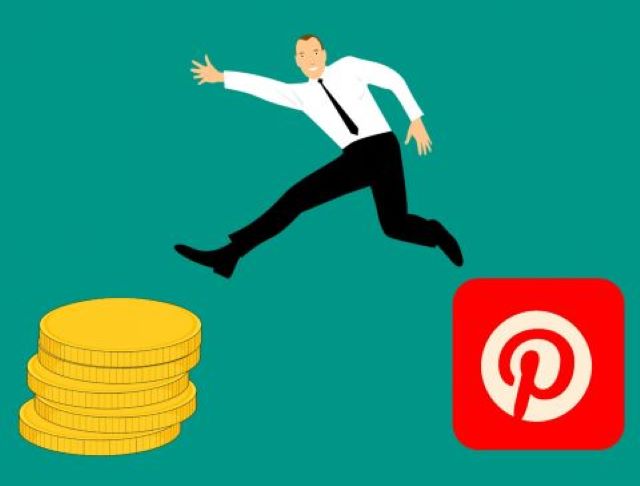 Going public will likely change Pinterest – perhaps substantially. Using the ticker PINS, Pinterest began trading on the New York Stock Exchange in mid-April. Its stock price rose 28.4% the first day of trading to $24.40 per share with a market cap of nearly $13 billion, CNBC reported.
Going public will likely change Pinterest – perhaps substantially. Using the ticker PINS, Pinterest began trading on the New York Stock Exchange in mid-April. Its stock price rose 28.4% the first day of trading to $24.40 per share with a market cap of nearly $13 billion, CNBC reported.
Many marketing experts say its stock market debut means marketers should take a new look at Pinterest.
Going public will flood Pinterest with the funds to meet aggressive goals and become a one-stop shop for users and marketers, predicts Nick Bennett, an account executive at marketing firm IMPACT. “The good news is Pinterest’s goals and aspirations mean great things for marketers on a few fronts,” Bennet says. “If Pinterest wasn’t already a part of your digital marketing strategy, it may be time to start considering it.”
Expect Improved Pinterest Services
Pinterest will use the money from public markets to improve its services, including advertising and e-commerce services. New technologies like Lens will help deepen engagement with users.
It will deliver more relevant and contextual ads for brands. Shoppable ads and Product Pins that will make items shoppable with up-to-date pricing, information about availability and links that go directly to the checkout page of a retailer’s website. Better measurement tools will provide insights that allow marketers to demonstrate return on ad spend.
Perhaps most importantly, Pinterest intends to reduce friction in its in-app purchasing process. Removing a single click from the purchase process can have huge impact on online purchases. “Because we are lazy — and one click could be the difference between cart abandonment and completion,” Bennett writes.
Like people clipping articles from magazines or catalogs, Pinterest users, or Pinners, browse photos for inspiration. Unlike a magazine, however, Pinterest enables users to immediately act. In other words, marketers can place their brands in front of Pinners close to their purchase decisions.
Going Public Doesn’t Always Go Well
Other observers are not so sure. Going public doesn’t always have a positive impact on companies, especially social media companies, points out Andrew Hutchinson at Social Media Today. Twitter has sometimes struggled under increased market scrutiny. Snap Inc. has also come under more intense pressure.
By trading publically and stressing its role as a visual search tool, Pinterest may prompt an aggressive response from Google, the original online discovery powerhouse, Hutchinson says. Google may counter Pinterest’s Shop the Look Pin with similar options. Last year, Google launched an updated image search layout, which uses a Pinterest-like format, including additional, contextual search tabs to further refine searches.
Perhaps in Pinterest’s favor, Twitter and Snap face more direct competition with Facebook; Pinterest asserts that it isn’t a social network. “We really think about it as a utility,” Pinterest CEO Benjamin Silbermann told CNBC’s Squawk Alley. “We’re less focused on making it a place where you talk to your friends every day or you follow celebrities.”
Pinterest may hope to avoid controversies Facebook and Twitter have faced, such as privacy shortcomings and fake news proliferation, by rejecting the social media classification.
Bottom Line: Enriched by a stock market windfall, Pinterest may improve its services for both users and marketers and evolve into an ecommerce powerhouse. Brands will probably keep a close eye on its new and enhanced services. However, past examples show that going public can increase scrutiny and ultimately hinder growth.
William J. Comcowich founded and served as CEO of CyberAlert LLC, the predecessor of Glean.info. He is currently serving as Interim CEO and member of the Board of Directors. Glean.info provides customized media monitoring, media measurement and analytics solutions across all types of traditional and social media.




